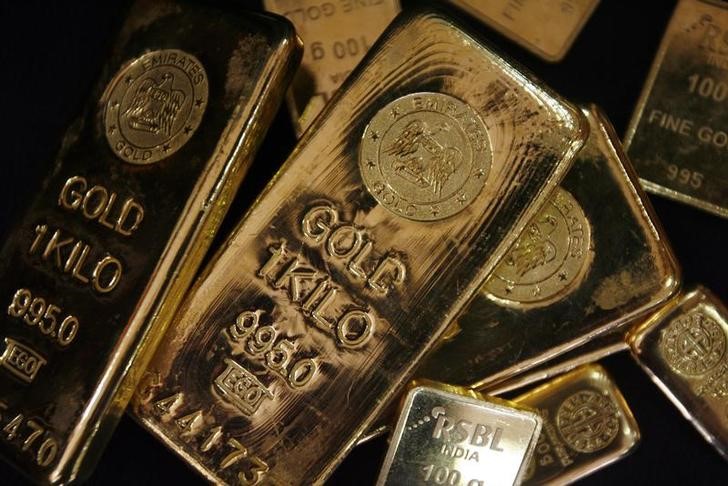Fed Governor Cook sues Trump over firing attempt
(Bloomberg) -- Shelter in gold, bet on emerging markets and buy “bonds in drag.”
So says David Rosenberg who believes an economic slowdown is on its way despite enduring job gains, easing trade tensions between the U.S. and China, and record-breaking stock markets in North America.
“If things are so great, why did the Fed have to cut rates last year?” he said in an interview at Bloomberg’s Toronto office. “If things are so great, why did the Fed have to embark on QE4, that we’re not supposed to call QE4?”
Rosenberg started his own independent research firm in January --Rosenberg Research and Associates Inc. -- after more than a decade as chief economist at Gluskin Sheff & Associates Inc. His warning of a U.S. housing bubble in 2005 when he was at Merrill Lynch proved prescient but he stayed bearish long after the economy had revived. He was bullish for five years starting in 2012 but has turned negative in recent years.
The roaring stock market is essentially a “bull market in financial engineering,” stoked by the Fed Reserve’s purchases of Treasury bills starting in October, interest rate cuts, U.S. President Donald Trump’s tax overhaul (which handed America’s top banks a $32 billion windfall) and corporate share buybacks.
“This is a liquidity-driven market. Liquidity is your best friend on Monday and your worst coward on Friday.” -- Rosenberg
“Last year, was like, just throw a dart,” he said. “Right now, it’s indiscriminate buying. Investing isn’t supposed to be like that. Investing isn’t supposed to be easy.”
The Debate Over Whether to Call It QE Is Over, and the Fed Lost
While economists only see a 30% chance of a U.S. recession in 2020, Rosenberg said a retreat in spending on restaurants, movies and furnishings and other discretionary spending are harbingers of a slowdown, along with a deceleration in U.S. core inflation.
“When you stop hearing ‘where are we going for dinner tonight?’ and instead you start hearing ‘who’s cooking dinner?’ then you know that a new form of frugality is taking place.”
Here’s how he’s battening down the hatches in his model portfolio:
“Gold is a place you want to be. I think that it’s partly because its inversely correlated with interest rates. But it’s also an insurance policy when things go wrong,” he said. “There’s no such thing as a no-brainer, but this is close.”
Read more on what to expect for commodities in 2020
Bullion is off to a roaring start this year as strategists from Goldman Sachs (NYSE:GS) to UBS Group AG called for $1,600 an ounce even before the Iranian crisis impacted global markets. The yellow metal has gained about a third since August 2018 and was trading around $1560 per ounce Monday.
Japan
Japan’s stock market is one that’s a “blind hold” for Rosenberg. Female participation rates have risen to levels higher than the OECD average and the nation has opened its doors to foreign labor. The country has also pushed companies to distribute dividends, introduce and/or expand share buybacks and have allowed for foreigners on corporate boards as shareholder activism picks up. “This is revolutionary in Japan.”
Bonds in Drag
Bond-proxies in the stock market, or what Rosenberg calls “bonds in drag” are also good investments as the economy heads into a downturn. Utilities, REITs and pipelines, which he calls asset-backed cash flow generators, are worth holding.
“It’s really more about putting together a portfolio of stocks -- non-cyclical, liquid, strong balance sheets, with not much of a refinancing calendar that have been able to increase their dividends,” he said.
“Downright cheap” energy stocks are also favored by Rosenberg. “Energy stocks are not priced for WTI where we are right now. They are priced for something that’s gotta be at least 20%-30% lower.”
Defense stocks are a cheaper way to boost exposure to tech as countries beef up military spending. “Defence is actually a technology. You can buy it at a lower multiple. Everybody is spending more money on military. The one thing that Trump has done, he’s done a lot of stuff, he has successfully pressured the NATO allies to spend more on military.”
End Game
The Fed’s asset purchases have created “so much liquidity” in global markets that it should be concerned, Rosenberg said. “There’ll be some other solution than just the Fed expanding its balance sheet in perpetuity,” he said. “Because that’s what’s creating this bubble.”
The U.S. and Canadian economies will slow and central banks will cut interest rates. Eventually, the Fed will have to print money and the Treasury will have to distribute it to the public to stimulate growth -- the so-called “helicopter drop” of money.
“There’s going to be an end game and it is the magical money tree,” he said.
